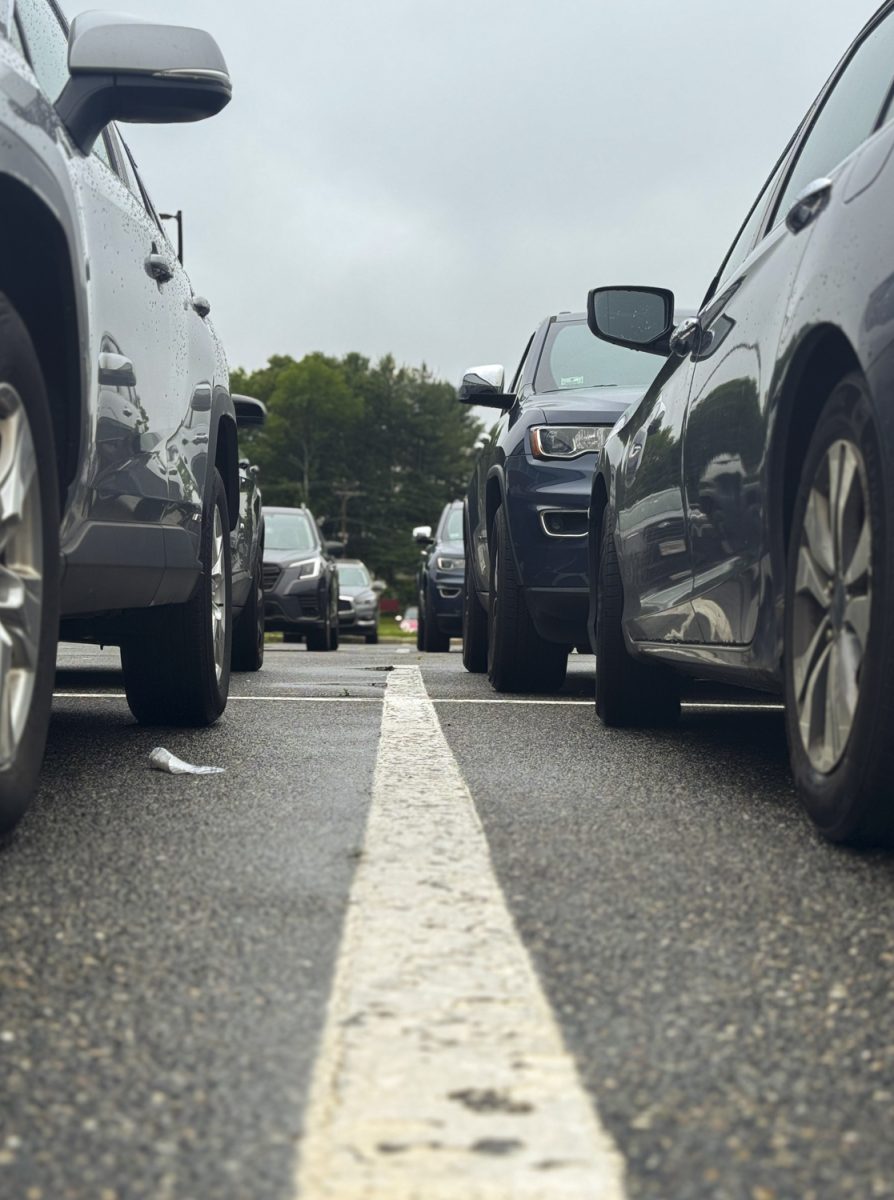A new system assigned students a lottery number to select their parking spot, aiming to create more equity in student parking, but the change has left students uncertain about its implementation.
The administration has implemented various systems over the years, and the new system assigned participating drivers a random lottery number. Students were called down by their numbers to the Gold Office on May 29 to select their parking spot, and rising seniors were given priority over rising juniors in the lottery. In previous years, students chose their parking spot on a first-come, first-served basis at the end of the summer.
According to Principal Sean Bevan, the previous system resulted in student behavior that necessitated changes to the system.
”At the beginning of this year, we did a non-lottery system where kids lined up as the students started showing up in the middle of the night, like literally at two or three in the morning,” Bevan said. “And kids cut the line, and it just wasn’t real healthy to have kids on our campus at 2 a.m. to line up for parking, so we needed a system that prevented that.”
Assistant Principal Andrew McGowan is optimistic about the equity of the new system.
”The new lottery system, before the end of the year, just kind of gives everyone a chance to get [their spot] before the new year starts and know right where they’ll be next year,” McGowan said.
Students who purchased a parking pass for the year paid $175 and received their lottery number on May 22, with the option to register with a group of friends by coming during the latest timeslot in the group.
However, while the new system has made it easier to park with friends, many have expressed disapproval of the overall lottery format.
”I didn’t like [the new system] because I thought that it’s just kind of luck-based and not merit-based,” junior Francis Edlemon said. “If you want the spot you had before, you had to get there early and actually do something in order to get it. But this time, it’s just you get it or you don’t.”
Some students, such as junior Tessa Novello, appreciated the competitive aspect of the previous system and looked forward to the festivity of lining up outside to secure their spot.
”I think that [the new system] was pretty awful because I feel like the people who wanted a spot didn’t actually get the chance to show how much they wanted them,” Novello said. “ I feel like a lot of the people who didn’t care about their spots ended up getting the first pick even though they didn’t know what [spot they wanted], so I thought that it was slightly unfair.”
Others share similar thoughts, expressing disinterest in the luck-based merit of a lottery system.
”I wasn’t a fan because I feel like it was just random because if you really wanted a spot, you couldn’t get that spot on this, you just got lucky,” junior Clarissa Truman said.
Bevan understands that some students may be disappointed by the absence of the competitive aspect of the new system, reflecting on the prior parking system.
“There were kids who I think would have liked the festive nature of showing up at school at midnight and getting into a beach chair and having your caffeinated drink,” Bevan said. “There’s something cool and unusual about that.”
Bevan emphasized the goal of creating a balanced system.
“I think they were aiming for a system that would balance equity with giving students some choice about where they parked,” Bevan said. “A lot of schools will just tell you what your spot is, and you park in that spot.”
McGowan recognizes that changes to the new parking system bring an adjustment period not just for students, but also for administration and faculty.
”The parking lot has evolved within the past few years,” McGowan said. “Whenever we put something new in place, there comes some tweaks that we are working out and trying. The end goal is to better the student experience, and sometimes that works immediately, and sometimes it takes a little time for that to work itself out.”











